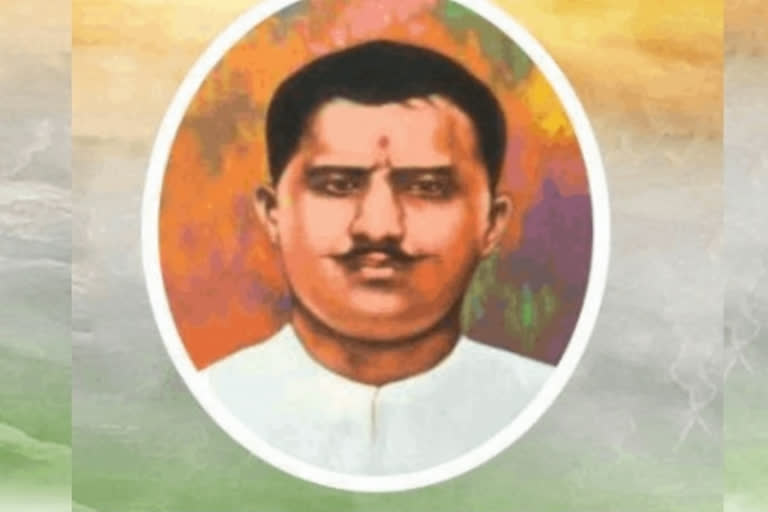Hyderabad: June 11 is an important day in India's history and observed as the birth anniversary of freedom fighter Ram Prasad Bismil. Pandit Ram Prasad Bismil who was born in 1897 belongs to a Tomar Rajput family in Shahjahanpur in North-Western Province of British India.
Bismil is famous for the Mainpuri conspiracy of 1918, and the Kakori conspiracy of 1925 and was hanged in Gorakhpur Jail on 19 December 1927 by the British for his revolutionary activities.
Read: Remembering Birsa Munda: Freedom fighter who championed tribal rights
On 1 November 1919 the Judiciary Magistrate of Mainpuri B. S. Chris declared Bismil as an absconder for his revolutionary activities. On 28 January 1918, Bismil published a pamphlet titled Deshvasiyo Ke Nam Sandesh and distributed it along with his poem Mainpuri Ki Pratigya to collect funds for the party called Shivaji Samiti to remove British Government from India.
On 9 August 1925 Bismil along with other revolutionaries executed a meticulous plan for looting the government funds carried in a train at Kakori, near Lucknow in U.P, which was later known as the Kakori conspiracy. More than 40 revolutionaries were arrested whereas only 10 persons had taken part in the decoity. Following 18 months of legal process, Bismil was hanged on 19 December 1927.
Read: Meet 106-year-old freedom fighter from UP
Like his revolutionary activities, Bismil's poems were inspiring and he translated Bolshevikon Ki Kartoot and Yogik Sadhna. Besides these, he penned a collection of poems - Man Ki Lahar and Swedeshi Rang. Later he gave words to his own life story and wrote an autobiography which was published under the cover title of Kakori Ke shaheed by Ganesh Shankar Vidyarthi in 1928. He wrote his autobiography while he was a prisoner.
Apart from writing poems and books Bismil also gave some encouraging quotes which are as follows
I believe, I will be reborn again, to serve my motherland again.
I agree to die thousands of times for my motherland, without thinking about the pain.
Oh God! Allow me to be born again multiple times, even after dying continuously.
I will abolish the name of slavery from society, and I will bring freedom there.
Dear youths, sacrifice your life for the motherland, and she’ll bless you.
Before leaving this world he immortalised the poem Sarfaroshi Ki Tamanna as a war cry during the British Raj period in India which was first published in the journal "Sabah" from Delhi. Shaheed Smarak Samiti of Shahjahanpur established a memorial at Khirni Bagh in Shahjahanpur city where Bismil was born in 1897 and named it "Amar Shaheed Ram Prasad Bismil Smarak".



